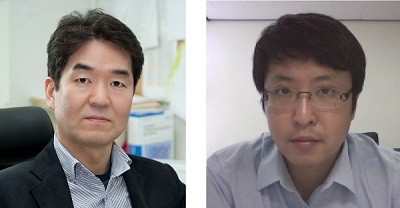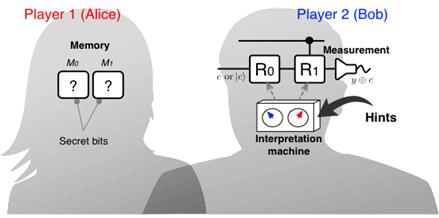Media Center
A multimedia mosaic of moments at GIST
GIST Excellence
[Press Release] GIST Professor Byoung Seung Ham"s research team shows that quantum advantage can be gained in classical information processing
- 엘리스 리
- REG_DATE : 2016.03.11
- HIT : 831
GIST Professor Byoung Seung Ham"s research team shows
that quantum advantage can be gained in classical information
processing

The advent of quantum devices may forever change the world as they can theoretically perform certain tasks and computations (such as the factorization of large numbers) much more efficiently than other devices based on classical systems. However, to better understand the advantage quantum devices may have over traditional devices, many researchers utilize the mathematical branch known as game theory to determine if it is possible to replace the classical strategy with a quantum strategy to gain a quantum advantage.
Game theory, which is concerned with strategies employed by players
and the payoff (or scores) of those strategies, has been applied to a diverse
range of fields from evolutionary biology to economics to determine if different
strategies (or actions) employed by the players produce better outcomes in
the players" scores, especially when the game (or scenario) is repeated
numerous times.
Traditionally, it has been thought that the rules for
classical game theory games must be altered to give quantum strategies an
advantage. However, Professor Byoung Seung Ham who is the director of the
Gwangju Institute of Science and Technology (GIST) Center for Photon
Information Processing led an international team of researchers to show that it
is possible to gain a quantum advantage without making any quantum modification
to a classical game.
The researchers did so by designing a new classical
two-player game called the Secret-Bit Guessing Game where one player named Bob
attempts to guess the secret bits of the other player, Alice. The researchers
then mapped out two parallel strategies Bob can employ in choosing the best
answer: one strategy uses classical probabilities and the other uses quantum.
On the basis of the payoff-function analysis, the researchers show that quantum
reasoning can be more advantageous without having to change or alter the
classical properties of the game.

The researchers investigated whether or not a player in a
classical game can gain a quantum advantage without having to change or alter
the classical setting of the game, and the results indicate that it is possible
to gain a quantum advantage even when all of the strategies are classical.
The research was entitled "Quantum-mechanical machinery
for rational decision-making in classical guessing game" and authored by Jeongho
Bang, Junghee Ryu, Marcin Pawłowski, Byoung S. Ham, and Jinhyoung Lee was published
online by Scientific Reports on February 15, 2016. The research was supported
by the Basic Science Research Program from the National Research Foundation of
Korea that is funded by the Ministry of Science, ICT, and Future Planning.
First-author Dr. Jeongho Bang said, "This study is an
important contribution to the field of quantum information research because it
provides tremendous insight in how quantum advantage can be gained even when
using classical information or classical data."